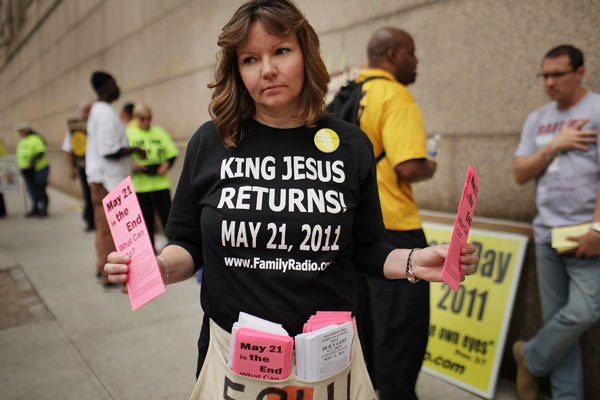[div class=attrib]From Eurozine:[end-div]
In his new book, American atheist Sam Harris argues that science can replace theology as the ultimate moral authority. Kenan Malik is sceptical of any such yearning for moral certainty, be it scientific or divine.
“If God does not exist, everything is permitted.” Dostoevsky never actually wrote that line, though so often is it attributed to him that he may as well have. It has become the almost reflexive response of believers when faced with an argument for a godless world. Without religious faith, runs the argument, we cannot anchor our moral truths or truly know right from wrong. Without belief in God we will be lost in a miasma of moral nihilism. In recent years, the riposte of many to this challenge has been to argue that moral codes are not revealed by God but instantiated in nature, and in particular in the brain. Ethics is not a theological matter but a scientific one. Science is not simply a means of making sense of facts about the world, but also about values, because values are in essence facts in another form.
Few people have expressed this argument more forcefully than the neuroscientist Sam Harris. Over the past few years, through books such as The End of Faith and Letter to a Christian Nation, Harris has gained a considerable reputation as a no-holds-barred critic of religion, in particular of Islam, and as an acerbic champion of science. In his new book, The Moral Landscape: How Science Can Determine Human Values, he sets out to demolish the traditional philosophical distinction between is and ought, between the way the world is and the way that it should be, a distinction we most associate with David Hume.
What Hume failed to understand, Harris argues, is that science can bridge the gap between ought and is, by turning moral claims into empirical facts. Values, he argues, are facts about the “states of the world” and “states of the human brain”. We need to think of morality, therefore, as “an undeveloped branch of science”: “Questions about values are really questions about the wellbeing of conscious creatures. Values, therefore, translate into facts that can be scientifically understood: regarding positive and negative social emotions, the effects of specific laws on human relationships, the neurophysiology of happiness and suffering, etc.” Science, and neuroscience in particular, does not simply explain why we might respond in particular ways to equality or to torture but also whether equality is a good, and torture morally acceptable. Where there are disagreements over moral questions, Harris believes, science will decide which view is right “because the discrepant answers people give to them translate into differences in our brains, in the brains of others and in the world at large.”
Harris is nothing if not self-confident. There is a voluminous philosophical literature that stretches back almost to the origins of the discipline on the relationship between facts and values. Harris chooses to ignore most of it. He does not wish to engage “more directly with the academic literature on moral philosophy”, he explains in a footnote, because he did not develop his arguments “by reading the work of moral philosophers” and because he is “convinced that every appearance of terms like ‘metaethics’, ‘deontology’, ‘noncognitivism’, ‘antirealism’, ’emotivism’, etc directly increases the amount of boredom in the universe.”
[div class=attrib]More from theSource here.[end-div]
Leonard Mlodinow weaves a compelling path through the world of statistical probability showing us how the laws of chance affect our lives on personal and grande scales. Mlodinow skillfully illustrates randomness and its profound implications by presenting complex mathematical constructs in language for the rest of us (non-mathematicians), without dumbing-down this important subject.

 [div class=attrib]From Slate:[end-div]
[div class=attrib]From Slate:[end-div]